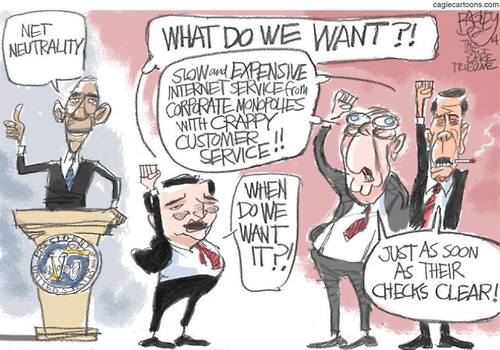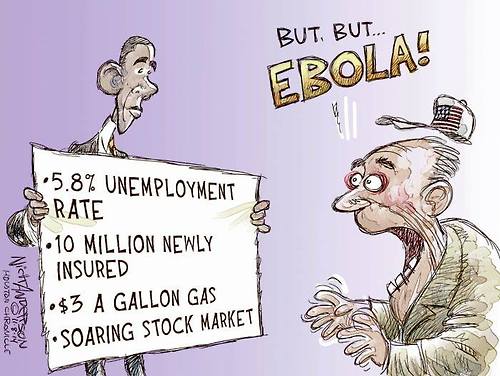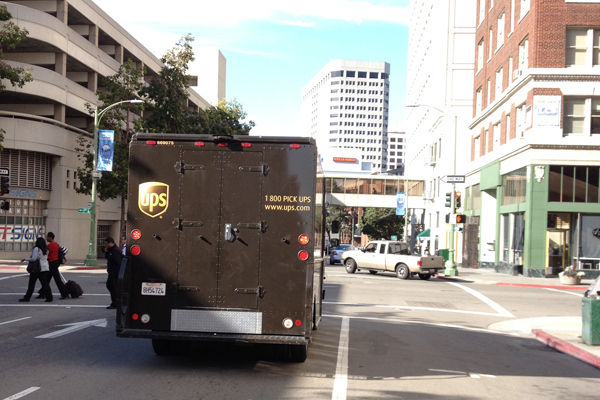Behind Closed Doors, Ford, UPS, and Visa Push For Net Neutrality
The corporate battle lines over the new federal rules for the Internet have been well established. Vocal technology startups have been leading the charge for muscular regulations for broadband access, and Internet service providers including Comcast (CMCSA) and Verizon (VZ) have been arguing loudly for more flexibility. Blue chip companies without obvious tech interests have kept a lower profile.
But a corporate alliance with subtle interests in this fight has been quietly pushing the Federal Communications Commission for strict broadband rules. In a series of meetings this year attended by representatives from Ford Motor (F), Visa (V), United Parcel Service (UPS), and Bank of America (BAC), participants urged FCC commissioners to reclassify broadband service under Title II, according to documents filed with the FCC.
That places some of the biggest Fortune 500 companies firmly on one side of the net neutrality debate, advocating for Internet access to be regulated like public utilities. It’s a position President Obama came out in support of last week. But it’s particularly striking, since none of these companies have discussed the issue publicly—and all four deny advocating for net neutrality behind closed doors with the FCC.
A corporate advocacy group, the Ad Hoc Telecommunications Users Committee, has so far paid at least three visits to commissioners at the FCC this year. The group, which has been around for at least three decades, doesn’t disclose information about its membership, doesn’t make public statements, and doesn’t even have a website.
Anyone who meets FCC commissioners must submit information about these visits. The corporate representatives affiliated with Ad Hoc Telecom are listed in the FCC filings without mention of their employers, but their affiliations were not disputed by the companies. The attendees included:
- Nicholas Lewis, senior vice president for federal legislative affairs at UPS
- Lawrence Chattoo, senior vice president for regulatory and public policy at Bank of America
- Carl Holshouser, a government relations leader at Visa
- James Carroll, Washington counsel for Ford Motor
The FCC is also required to post information on what was discussed, and the disclosures make it clear that the people in these meetings echoed the arguments being made by consumer advocates agitating against Internet fast lanes of all kinds.







